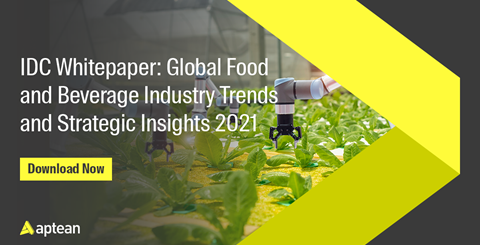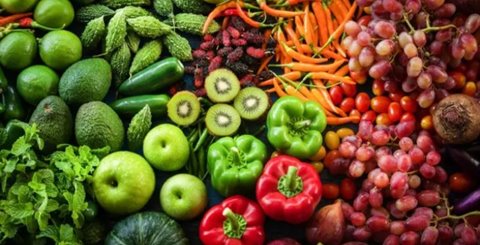An Interview With Joe Kelly from ProStrategy
The aftermath of Brexit could cost food retailer millions and will directly impact retailers and the entire supply chain. Meanwhile, another attempt at a deal was rejected. We’re discussing the impact of Brexit on the Irish food industry and the aftermath of this shift with Joe Kelly, Director of Business Solutions at ProStrategy, Industry Leading Partners of choice in Ireland for ERP, CRM, Data & Analytics and Financial Performance Management. The supply chain is changing and food companies need to consider how to position their business in these times of change.
As a software supplier, how does ProStrategy foresee the impact of Brexit?
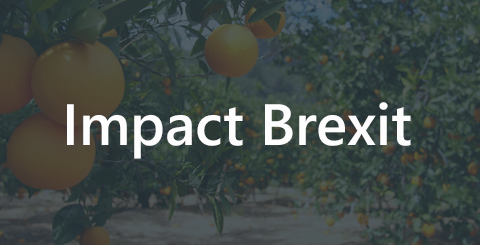 With all the uncertainty associated with Brexit these days it’s useful to consider the generally agreed key changes that will have an impact on EU/Irish exports. Some of these key changes would result from a hard Brexit. Currency change (the loss of value of Sterling) has already occurred since 2015 but the pound could see further losses should a hard Brexit materialise.
With all the uncertainty associated with Brexit these days it’s useful to consider the generally agreed key changes that will have an impact on EU/Irish exports. Some of these key changes would result from a hard Brexit. Currency change (the loss of value of Sterling) has already occurred since 2015 but the pound could see further losses should a hard Brexit materialise.
Some key points to consider would be:
- 41% of Ireland’s Food and Drink exports go to the UK.
56% of meat; 30% of dairy; 32% of alcohol. - The devaluation of sterling (from .69 in 2015 to .86 today – nearly a 20% reduction)
Euro based companies depending on the UK as an export market have already suffered – this has happened in a period of general low inflation – so they are having to reduce prices to compete. Some companies are just surviving, and the outcome of current deliberations in the UK will have a significant impact. - Currency traders are looking more to politics now rather than economic data
A softer Brexit will boost the value of the pound (but this is in now way certain at the moment) BUT a hard BREXIT will see further declines in the value of the Pound and put additional pressure on Euro based exporters to the UK. - The potential introduction of WTO tariffs could see a range of taxes on goods coming into the UK from Europe which would have a huge impact on Irish exports.
Irish Cheese exports could fall by 89%; Beef by 88% and other meats by 76% - The recent announcement by the UK of zero tariffs from Ireland into Northern Ireland are temporary in nature and will only impact goods exported from Ireland that will stay in Northern Ireland. Goods exported from Ireland (or the rest of the EU) that are ultimately destined for Britain will be subject to tariffs.
- Some legal and EU commentators believe the introduction of tariffs that are not in agreement with WTO rules are illegal and cannot be relied on.
- Companies have been working hard to diversify into new markets and push productivity gains – since 2010 volume of the Irish food industry has grown by 46% but value has only grown by 27% showing a tightening of prices and margins – further price adjustments will be very difficult to manage.
Software’s job in all of this is to help simplify the processing of WTO based trading rules; export/import licenses and other additional administration brought on by Brexit. If we can help food companies push productivity and manage processing costs, we will be playing our bit to help suppliers in an increasingly difficult market.
Companies with complex supply chains will take the biggest hit after Brexit. Food companies and manufacturers will have to be better prepared than ever whatever is about to come. Will there be a shift to more local produce? Or will this be an opportunity for the UK to shift more towards the global markets? How will this impact food businesses’ strategic and contingency planning?
The big question is how hard or soft Brexit will be.
- A hard Brexit will see a return to WTO trading rules and associated tariffs
- A softer Brexit will see an emphasis on staying close to free trade
In the event of a hard Brexit, the shift towards global markets will take time for the UK. The UK’s global supply chain will be hit by tariffs (WTO rules) while negotiators work on new trade agreements. So, we can expect disruption for manufacturers and importers/exporters in the UK. For Euro based companies that export to the UK, some will be priced out of the UK market (the effect of WTO tariffs).
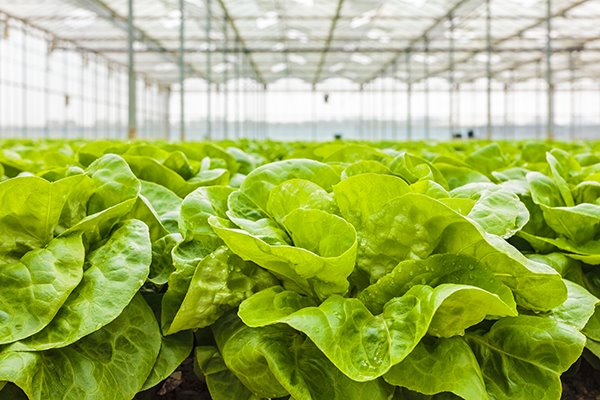 UK companies cannot “simply” switch to local produce. The UK is already importing a significant amount of food to keep it supplied. The volume of food required in the UK is not currently available from local sources. If a hard Brexit happens then consumers in the UK will be facing significant price hikes. Exports to the UK will experience a resistance to UK consumers paying those higher prices, so sales volume will decrease. Euro based exporters will need to find new markets to maintain business levels.
UK companies cannot “simply” switch to local produce. The UK is already importing a significant amount of food to keep it supplied. The volume of food required in the UK is not currently available from local sources. If a hard Brexit happens then consumers in the UK will be facing significant price hikes. Exports to the UK will experience a resistance to UK consumers paying those higher prices, so sales volume will decrease. Euro based exporters will need to find new markets to maintain business levels.
There are a lot of assumptions floating around the fate of the farming industry, as competition from EU farmers will pretty much disappear. It is expected that the farming industry in the UK will be hit by 60% loss of income. Given these predictions, what do you foresee will happen to Irish and British farmers?
In the event of a Hard Brexit – Irish farmers will be devastated as 56% of Irish meat is exported to the UK along with 30% of dairy. The introduction of WTO tariffs will price many Irish farmers out of the UK market. In the UK this will lead to a move towards larger farming units where tighter margins will need significant scale to survive. In the case of Ireland, farmers and producers will need to look to other markets.
What about the fishing industry? Any no-deal Brexit will close the EU market for UK fish. Fish is one of the most regulated and protected industries in the EU. When the UK leave, they will not be protected and will pay the import duties. They will have exclusive rights to their waters and exclusive rights on selling in the UK. How will these changes impact the fishing industry?
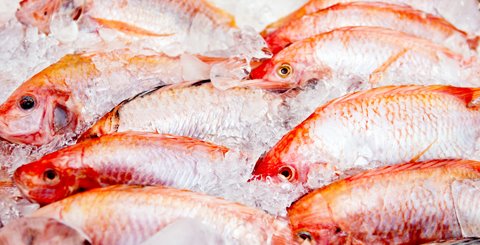
The UK fishing industry is relatively small but the UK being in the EU does grant advantages to both Ireland and the UK. The UK are processors of global fish catches, so much so that when the residents of Grimsby (a fishing town on the Humber estuary) voted to leave the EU, the local fish processors begged for a special exemption so that they could continue to process fish without tariffs. Ireland’s fishing industry is under constant challenge and many Irish fishers have access to UK waters under EU rules. This access will disappear. Ireland’s main concerns are: -
- The loss of Irish access to British waters;
- The potential influx of European vessels into Irish waters once the UK territories leave the EU;
- The quota share of the fish that Irish vessels currently catch in British waters.
There’s often talk about worry regarding food safety standards being weakened in an attempt to close faster trade deals with foreign countries. Food safety on import of food is regulated and controlled by the large EU Food safety board. When the UK has to do this themselves, will they have the power to check all regulations from all sourcing? Do you think that the import of cheaper produce in the UK loosen the food safety standards?
There will probably be little option about this. In a situation where WTO rules price Irish and EU food out of the UK market, the UK will need to look to countries such as Argentina and Brazil to make up the demand of UK consumers. These other low price producers do not operate to the same quality standards and so the UK consumer will have less regulated food on the supermarket shelves.
Changes coming to informational agreements could very well change the way many companies do business. How will companies handle EDI, electronic invoicing after Brexit?
Electronic invoicing should not see major change. The biggest impact to be the need for import/export licenses and handling tariffs. The paper work will slow business down as customs regulates the flow of goods.
The effects of food costs rising aren’t likely to go away, making food suppliers pass these costs onto their customer base. Extra certifications, WTO tarrifs, import licenses, customs checks? Exports could become an attractive option. How will these costs impact food companies?
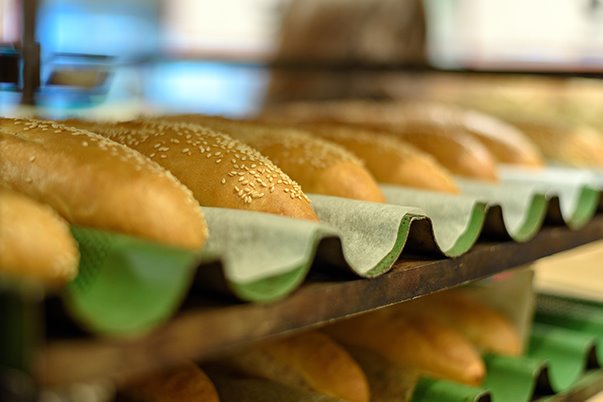
All these food companies have customers and a lot depends on what the market will bear. Economic activity in the UK is likely to suffer after a no-deal Brexit and there will be job losses. We can see this trend already in the announcements by several large international companies in the UK saying that they will either leave the UK or reduce manufacturing. This will have a knock on effect throughout the economy with less money available to purchase higher priced goods. Food companies will have to find alternate markets to survive but exporting from the UK will also be impacted by WTO tariffs.
It will be the food companies that can rationalise their operations and work on tighter margins that will survive. Smarter and leaner operations enabled by state of the art software will help food producers.
Traceability remains the most relevant food quality and safety factor. Food businesses and manufacturers need to continue to keep an eye on where materials come from. Will the production be more cost driven because of Brexit?
Managing costs will be one of the major factors that will separate suppliers who will survive. Traceability is important today, but I see recalls in the UK becoming more common when lower quality food from less regulated markets find their way onto UK supermarket shelves.
The development of new products can increase revenue streams, giving companies increased profit margins when the new regulations come into effect. Investments in the latest technological advancements become more of a demand than ever. What can food companies do to stay competitive in these tumultuous times?
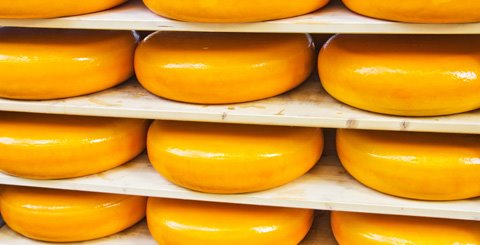
Efficient processing of food is increasingly important as margins are tightened and so high productivity will be essential for companies to survive. New product lines will need quality assured processing built in to save time and cut down on waste and good software solutions can deliver these needs.
Streamlining business processes with the latest technological advancements such as automation, AI, machine learning, cloud computing and improved data management makes food businesses ready for these changes. But how can their current ERP systems keep up with these changes?
ERP has been around for a long time and good systems are available from several suppliers. The key differentiator for the future is the amount of R&D that is being spent on the solution that is being used by a food company. AI and creative insights through powerfully applied business analytics are not easy to implement well and I often see half-hearted attempts to deploy these advanced technologies. It essential that companies use best in class software that delivers state of the art technology to help food companies thrive in the future.
What do you see as the biggest impact of Brexit on business’ ERP solutions? What can food companies do in order to ensure a better transition post-Brexit?
The lack of R&D associated with some solutions will mean that they cannot provide what the industry needs to maximise productivity and assure quality. Food companies must see top class-technology as an “enabler” that can deliver growth, productivity and longevity.
It comes down to the key processes of companies that enable high productivity. I believe that the differentiator in the future will be very high productivity and tight quality control. These are vital elements of food processing that can’t be left to manual processes.
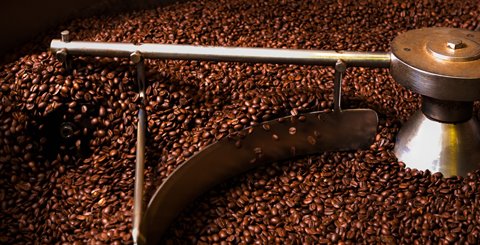 In an environment where margins are low, the only way you can survive is through scale. And if you’re going to scale your operation in a low margin environment, you must have processing systems in place that take care of quality, control and result in higher productivity. These systems are becoming increasingly important because they can deliver productivity that goes way beyond human capacity.
In an environment where margins are low, the only way you can survive is through scale. And if you’re going to scale your operation in a low margin environment, you must have processing systems in place that take care of quality, control and result in higher productivity. These systems are becoming increasingly important because they can deliver productivity that goes way beyond human capacity.
Another differentiating factor worth mentioning is analytics. People simply don’t have the time to read through reports and to investigate issues and that’s in fact what good analytics and Artificial Intelligence can bring.
I see the amount of R&D that goes into systems like Foodware 365 as that differentiator and will certainly help companies to drive their productivity and stay competitive. ERP is the enabler of growth and our mission is to help companies do very well. The way we do that is by implementing software solutions that enables food companies to do business better.

Joe Kelly, Owner of ProStrategy
Since 1985, ProStrategy have been helping organisations to streamline their business processes and gain deeper insights into their business. To do this, we bring our 30 years experience of the industry and world-class software to the table.
 Nederlands
Nederlands English
English

